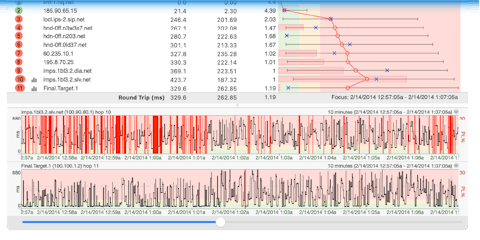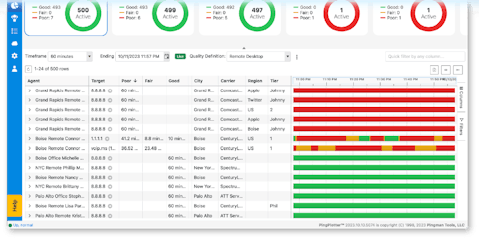Step Three
It appears your local network is suffering from bandwidth saturation.
This can be caused either by having too many devices connected at once or a few devices using a high quantity of bandwidth at once.
To resolve this, begin by checking to see if any devices on your local network are currently running any high-bandwidth processes. This can include video streaming or downloading files and updates. Don’t forget any currently-open browser tabs (outside this one, of course), as there may be web apps transferring data.
End any processes or disconnect any devices you suspect are currently transferring high amounts of data. However, avoid disconnecting this device or your secondary device, as these will help you know if you’ve been successful.
As you end these processes or disconnect devices, watch the results on your Secondary Device. If saturation was to blame, you should begin to see latency drop to consistently-low values.
If it appears that local bandwidth saturation is to blame, you may need to invest in a router capable of managing the high quantity of data transferring through your network. Otherwise, you may need to disconnect certain devices or limit their bandwidth usage when partaking in any high-bandwidth or latency-sensitive activities (like video streaming).
Did this resolve your issue?
Yes! I don't think so...
